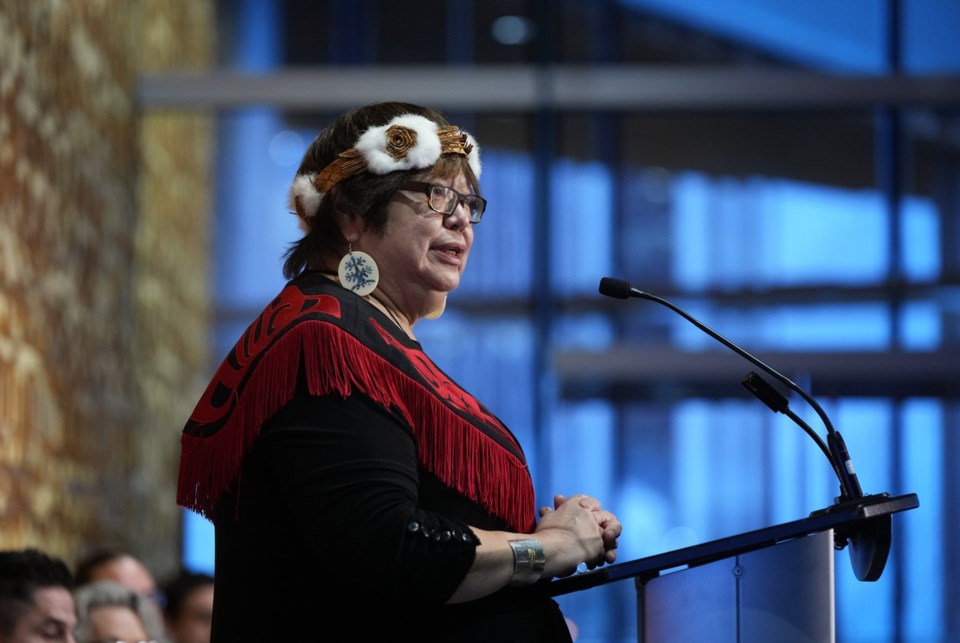PORT ALBERNI, –°¿∂ ”∆µ ‚Äî Getting a bed at one of British Columbia's drug detoxification facilities is like winning the lottery, the vice-president on the Nuu-chah-nulth Tribal Council says.
Les Doiron told a news conference Thursday that the province does not have enough facilities dedicated to helping those struggling with addiction amid the opioid crisis that has killed more than 15,000 people since a health emergency was declared in –°¿∂ ”∆µ eight years ago.
It has had a devastating affect on Indigenous communities, Doiron said.
"Island Health has only two (detox) facilities, one in Nanaimo, one in Victoria," he said at a news conference in Port Alberni, 85 kilometres west of Nanaimo.
"And the First Nations Health Authority has 10 in the entire province. So, what happens is that if you want to get into detox and you meet the criteria, you have to be almost like a lotto winner to be able to get in there. And these are some of the problems that we're facing."
On Thursday, the tribal council representing 14 First Nations along the west coast of Vancouver Island, declared a state of emergency over the opioid crisis and mental health struggles its members are facing.
They're calling for "dedicated and substantial funding" to provide meaningful and culturally appropriate trauma-informed services, and for the provincial and federal governments, along with –°¿∂ ”∆µ's health authorities, to provide supports.
Surrounded by photos of people who have died, Indigenous leaders spoke to reporters about the urgent need for action as the death toll climbs.
One of the pictures in the room was of Doiron's nephew.
"I haven't seen the picture. I'm kind of afraid to walk around and look at it," he said.
"He died for a couple reasons. One of them was he detoxed himself because there is no detox facility."
Figures from the First Nations Health Authority show Indigenous people died from drug poisonings at more than six times the rate of other –°¿∂ ”∆µ residents last year.
Judith Sayers, president of the Nuu-chah-nulth Tribal Council, said not enough is being done and the nations need help to devise their own solutions to fight what she calls a "war on trauma" to deal with the colonial past.
Sayers said First Nations need funding to support overwhelmed workers in their communities and to build detox and rehabilitation centres.
"We are losing too many people, especially young people," she said.
"Port Alberni (has) the second highest number of drug deaths (in British Columbia), second only to the east side (in) downtown Vancouver. And that's shocking."
Ahousaht First Nation elected Chief Coun. John Rampanen said it's important for Indigenous people to reclaim agency over their well-being.
"It's not as easy to just label drugs and alcohol as being the core issue for a lot of the lives that we're losing," he said.
"When we look at the broader aspects of intergenerational trauma, what we start to appreciate is that it's the loss of agency. It's the loss of being the authors of our own plan moving forward for our own health and our own well-being."
Elected Chief Coun. Ken Watts of the Tseshaht First Nation said not enough is being done, and British Columbians should ask candidates running in this October's provincial election what they plan to do to help.
At an unrelated event on Thursday, Premier David Eby called the news "devastating" and said the province will be providing counselling for those who are struggling.
Eby said the Orca Lelum Youth Wellness Centre in Lantzville, near Nanaimo, will soon have detox facilities for Indigenous youth.
"We're supporting the First Nations Health Authority with additional treatment sites. But this is real and this is right now for Nuu-chah-nulth, so we'll make sure that we are there with them for the supports that they need," he said.
In the House of Commons on Thursday, Gord Johns, the New Democrat MP for the riding of Courtenay—Alberni, questioned why the federal government was not doing more to help the tribal council members.
He said the council has had applications for substance use and addictions support through federal programs denied.
"Communities across the country are in crisis. They don't have the resources they need to support people who are struggling with trauma, mental health and substance use disorders, but the Liberals keep delaying support," he said.
Federal Minister of Mental Health and Addictions Ya'ara Saks responded that the government has promised $150 million over three years as part of a national emergency treatment fund.
Saks said the government will "work directly with communities like the ones the member discussed because we know we need to be there to save lives."
Sayers said a meeting was held with provincial government and health officials to discuss the concerns and another meeting is being planned with the federal government.
— By Ashley Joannou in Vancouver
This report by The Canadian Press was first published Sept. 19, 2024.
The Canadian Press




